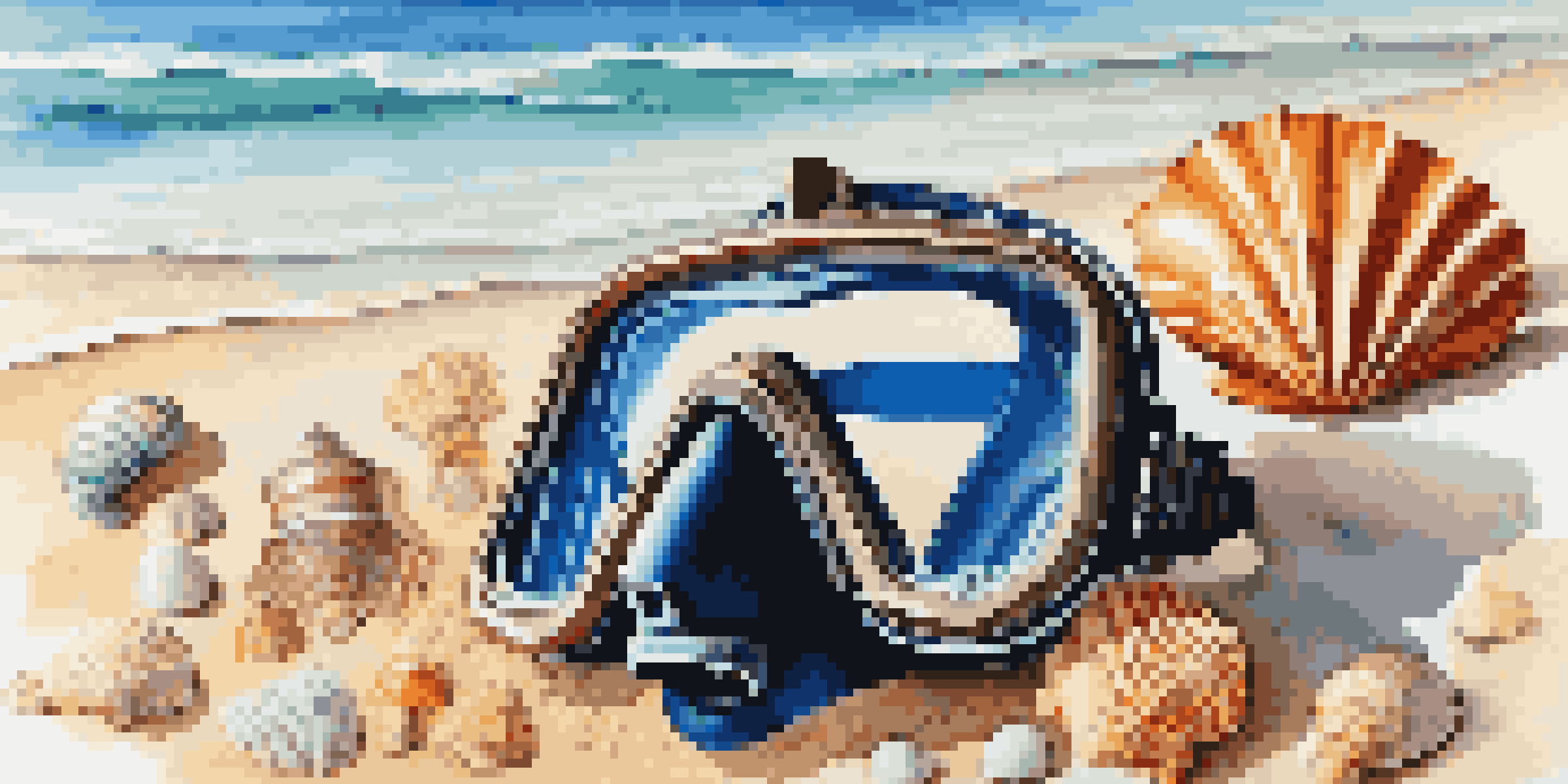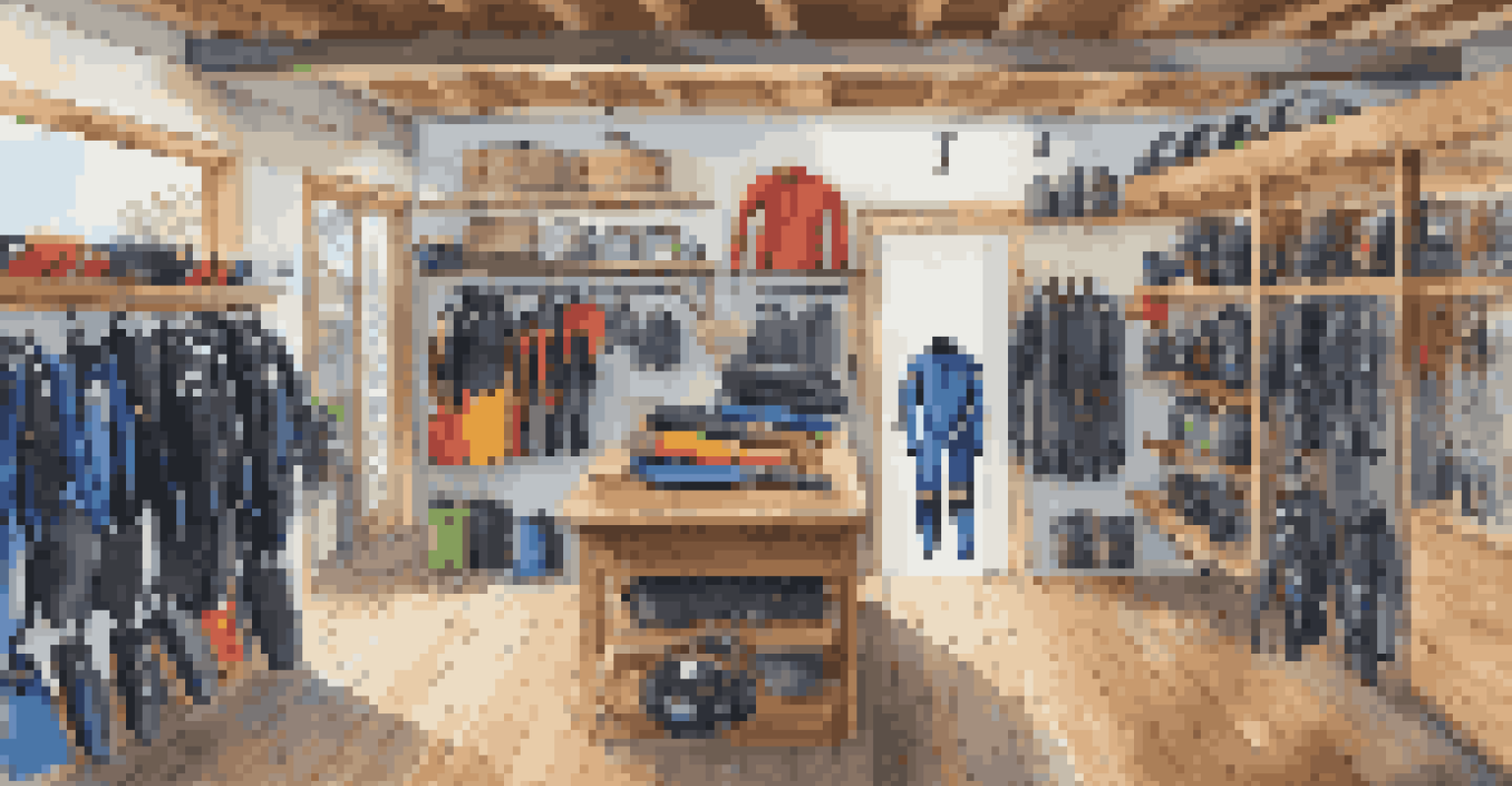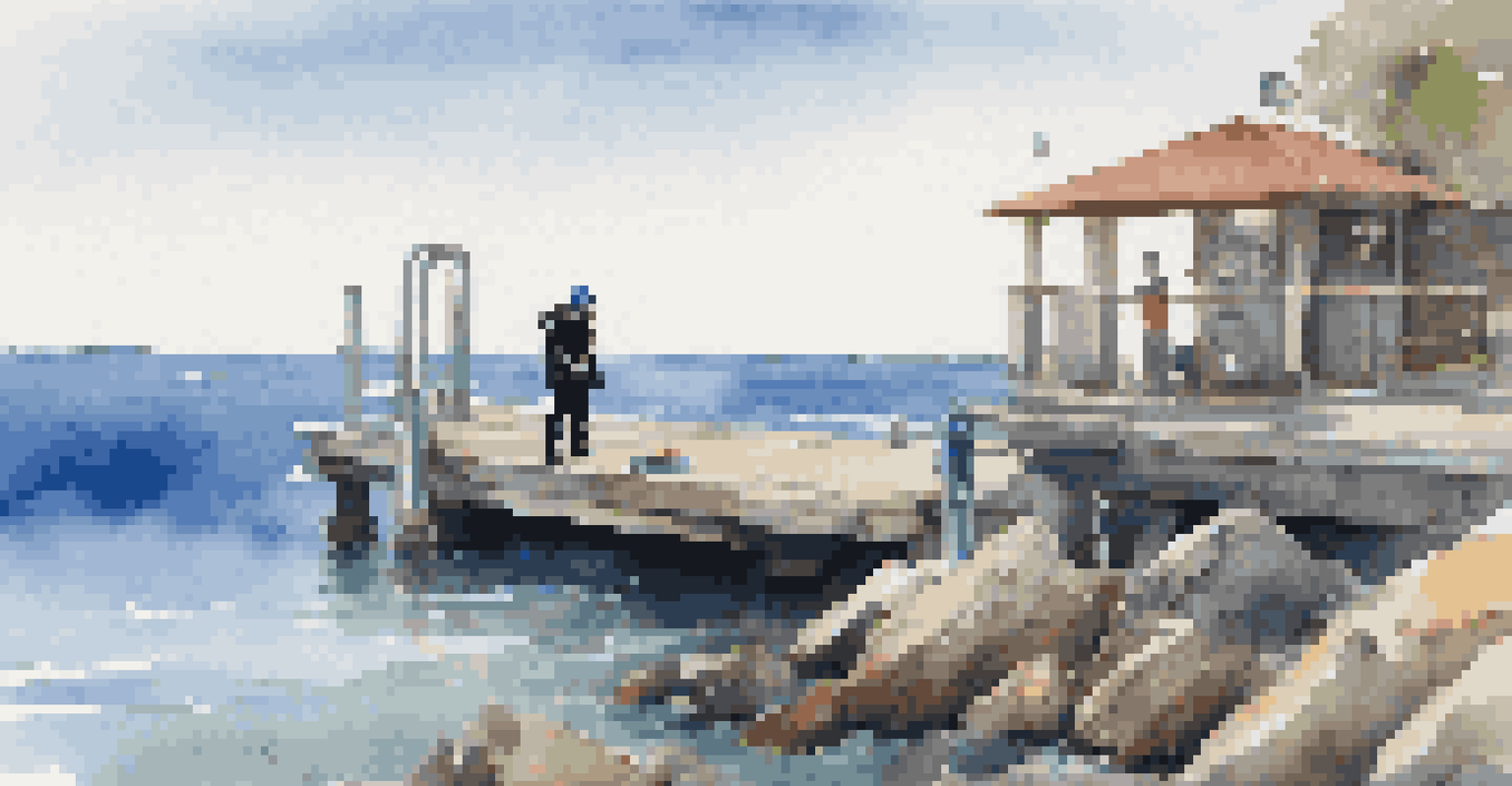Scuba Diving Gear Rental: What You Should Know

Understanding Scuba Diving Gear Basics
Before diving into the world of rentals, it's important to understand the basic components of scuba diving gear. The essential equipment typically includes a mask, snorkel, fins, wetsuit, BCD (Buoyancy Control Device), regulator, and tank. Each piece plays a critical role in ensuring you have a safe and enjoyable underwater experience.
The only thing more dangerous than diving is not diving.
Many first-time divers might feel overwhelmed by the variety of gear available, but knowing the basics helps simplify the rental process. For instance, a well-fitted mask can mean the difference between a comfortable dive and a frustrating experience. It’s beneficial to familiarize yourself with these items before you visit a rental shop.
By understanding what each piece of equipment does, you can ask informed questions and make better choices when selecting your gear. This foundational knowledge sets the stage for a more enjoyable and stress-free rental experience.
Choosing the Right Rental Shop
Not all scuba rental shops are created equal, so it pays to do a little research before committing. Look for shops with positive reviews, knowledgeable staff, and a wide selection of well-maintained equipment. Personal recommendations from experienced divers can also guide you to reputable options.

When you visit a rental shop, take note of how the gear is stored and maintained. A clean, organized space usually indicates that the shop takes pride in their equipment. Additionally, don't hesitate to ask about the age and condition of the gear you’ll be using; safety is paramount when it comes to diving.
Know Your Scuba Gear Basics
Understanding the essential components of scuba gear enhances your rental experience and ensures safety underwater.
Ultimately, the right rental shop can enhance your diving experience, providing not just gear but also expert advice and support. Choosing wisely means you can focus more on exploring the underwater world and less on gear-related worries.
Inspecting Rental Gear Before Use
Once you've selected your rental gear, it's essential to conduct a thorough inspection before hitting the water. Check for any visible damage or signs of wear, especially on the regulator and tank. Look for cracks, leaks, or anything that seems out of place, as these can compromise your safety underwater.
Diving is not just a sport, it's a way of life.
Don’t hesitate to ask the rental staff if you’re unsure about any aspect of the gear. They should be able to explain how to use each piece of equipment properly and guide you through the inspection process. This not only ensures your safety but also builds your confidence as a diver.
Taking the time to inspect your gear can prevent potential issues during your dive, allowing you to focus on enjoying the beauty of the ocean. Remember, it's always better to be cautious and double-check than to find yourself in a tricky situation later.
Understanding Rental Policies and Fees
Before you rent, familiarize yourself with the shop’s rental policies. This includes understanding the fees, whether there’s a security deposit required, and the time frame for returning gear. Some shops offer discounts for multi-day rentals or package deals that can save you money.
Additionally, inquire about the cancellation and refund policies in case your plans change. Knowing these details in advance can save you from unexpected charges and ensure a smoother rental experience. Transparency in policies reflects a trustworthy rental shop.
Choose a Reliable Rental Shop
Selecting a reputable rental shop with well-maintained equipment and knowledgeable staff can greatly improve your diving experience.
Being informed about rental terms allows you to manage your budget effectively while ensuring you have the right gear for your diving adventure. Clarity on these aspects can make your trip more enjoyable and less stressful.
Tips for Proper Gear Usage
Using your rented scuba gear properly is crucial for both safety and enjoyment. Start by familiarizing yourself with how each piece works before your dive. For instance, practice how to adjust your BCD and how to clear your mask in a controlled environment if you’re new to diving.
Once in the water, pay attention to how your gear feels and performs. If something seems off, don’t hesitate to surface and address the issue. Proper usage not only ensures your safety but also enhances your overall diving experience, allowing you to immerse yourself in the underwater beauty.
Remember, each dive can be a learning experience. Take the time to understand your gear better with every dive, and you’ll be more prepared for future adventures.
Returning Rental Gear: What to Expect
Returning your rental gear is often just as important as the rental process itself. Make sure you return the equipment on time to avoid additional fees. Some shops might have specific hours for returns, so plan accordingly to ensure a hassle-free experience.
During the return process, staff will typically inspect the equipment for damage or wear. Be prepared to discuss any issues you may have encountered during your rental period. Being honest about any problems can help maintain a positive relationship with the rental shop.
Prioritize Safety with Inspections
Conducting thorough inspections of rental gear before use is crucial for your safety and enjoyment while diving.
Finally, don’t forget to ask for tips or feedback about your gear usage. This can provide valuable insights for your next diving adventure, as well as foster a sense of community with fellow divers and rental staff.
Staying Safe While Diving with Rented Gear
Safety should always be your top priority when diving, especially with rented gear. Make sure to follow all safety protocols, including pre-dive checks and briefings with your dive instructor. Always communicate any concerns about your equipment before the dive begins.
Additionally, familiarize yourself with the local diving conditions and any specific risks associated with the area. Understanding your environment helps you make better decisions while underwater, and knowing your gear can prevent accidents.

Lastly, remember that diving is a shared experience. Keep an eye on your dive buddy, and ensure that both of you feel comfortable with the gear and diving conditions. This collaborative approach not only enhances safety but also enriches your diving experience.